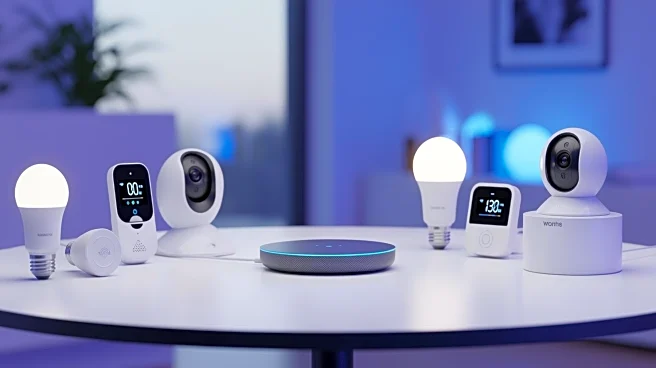What's Happening?
Smart home hubs serve as the nerve center for smart home gadgets, connecting and communicating with devices over Wi-Fi or other standards like Zigbee, Z-Wave, or Bluetooth. These hubs enable users to control devices using voice commands or apps, facilitating
automation and routine creation. Popular smart home hubs include the Google Nest Hub and Apple HomePod mini, which offer features like multiple user profiles and compatibility with various smart devices.
Why It's Important?
The integration of smart home hubs is crucial for the seamless operation of smart devices within a home. By centralizing control, these hubs simplify the user experience, allowing homeowners to automate tasks and manage devices from a single platform. This not only enhances convenience but also improves security and energy efficiency. As the smart home industry grows, hubs play a vital role in ensuring compatibility across different brands and technologies, thereby expanding the market for smart home solutions.
What's Next?
As smart home technology continues to evolve, the demand for more advanced and versatile hubs is expected to increase. Future developments may focus on enhancing interoperability between devices and improving user interfaces for easier management. Additionally, the integration of new communication protocols like Matter could further streamline device compatibility, making smart home setups more accessible to a broader audience.
Beyond the Headlines
The rise of smart home hubs also raises questions about data privacy and security. As these devices collect and process data from various smart home gadgets, ensuring robust security measures is essential to protect user information. Moreover, the ethical implications of data usage and sharing within smart home ecosystems will likely become a focal point as the technology becomes more widespread.

















